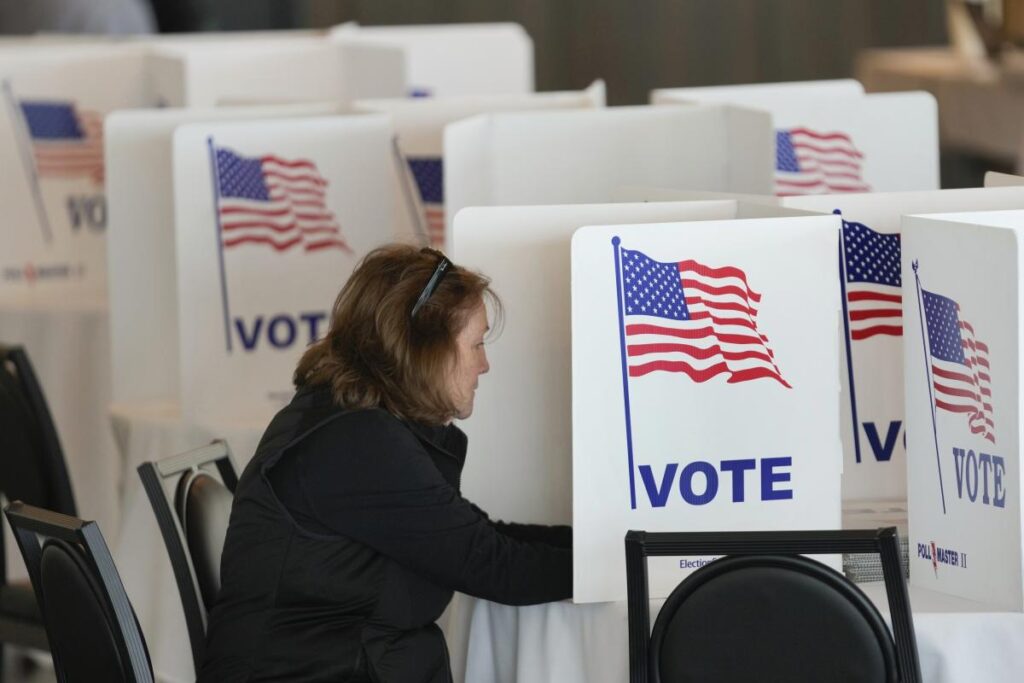In a significant ruling, a federal court in Michigan has dismissed a lawsuit initiated by the Republican National Committee (RNC) regarding voter registration records, highlighting the challenges facing the GOP in a critical battleground state. The lawsuit accused Michigan’s Secretary of State, Jocelyn Benson, and the Director of the Michigan Bureau of Elections, Jonathan Brater, of failing to maintain accurate and clean voter registration records. U.S. District Judge Jane Beckering responded to the RNC’s claims by stating that the party did not provide sufficient evidence to support its allegations and lacked legal standing to challenge the state’s voter registration practices. This ruling marks another setback for the RNC’s efforts to assert its position on voting integrity in Michigan.
In conjunction with this federal ruling, a Michigan state judge also rejected an attempt by the RNC to disqualify ballots from specific overseas and military voters, indicating a broader pattern of unsuccessful legal challenges from the Republican party. The original lawsuit filed by the RNC in March claimed that the number of registered voters in Michigan exceeded the number of eligible citizens, a contention that has been circulated recently by prominent figures, including Elon Musk, who has a vested interest in promoting certain narratives on voter registration. The Republicans argued that the state had failed to remove ineligible voters from its rolls, allegedly violating the National Voting Rights Act.
However, Judge Beckering found the Republicans’ claims unconvincing, pointing out that the party failed to demonstrate specific instances of ineligible voters on Michigan’s active voter rolls. The court’s review revealed that while the total number of voter registrations may exceed the number of eligible voters, this includes individuals who are inactive yet cannot be removed under existing federal and state laws. Specifically, federal guidelines prohibit purging voters until at least two federal general elections have elapsed after a voter fails to respond to official inquiries about their eligibility. As noted by the Secretary of State, there are currently over 550,000 registered voters slated for potential removal, with plans to cancel some registrations as late as 2027.
Jocelyn Benson emphasized the futility of the RNC’s allegations, asserting that “false and meritless claims—whether they are posted on social media or in legal filings—won’t stand up in court.” She reiterated that factual evidence and adherence to legal standards ultimately guide judicial outcomes. This sentiment reflects a broader commitment to uphold the voting process’s integrity amid growing allegations and critiques from Republican figures, including former President Donald Trump, who have been vocal about purported electoral fraud without substantial proof.
The RNC’s lawsuit is situated within a larger context of Republican efforts to challenge the electoral system in Michigan and raise doubts about the validity of the voting process ahead of significant elections. These initiatives aim to sow confusion among voters regarding registration accuracy and the integrity of electoral outcomes. Such tactics appear not only as attempts to bolster Republican claims of potential electoral manipulation but also as strategies to galvanize their base by appealing to fears of voter fraud.
The dismissal of the RNC’s lawsuit reflects both judicial scrutiny of the claims made and a larger trend of courts rejecting unfounded assertions regarding voter registration. As states navigate the complex landscape of voter rights and registration processes, the outcome in Michigan signals the importance of evidence-based challenges in courts, reinforcing the judicial system’s role in protecting the integrity of elections against baseless allegations. As this ongoing dispute continues to unfold, it remains clear that the intersection of political claims and judicial accountability will play a crucial role in shaping the narrative surrounding elections in the United States.

